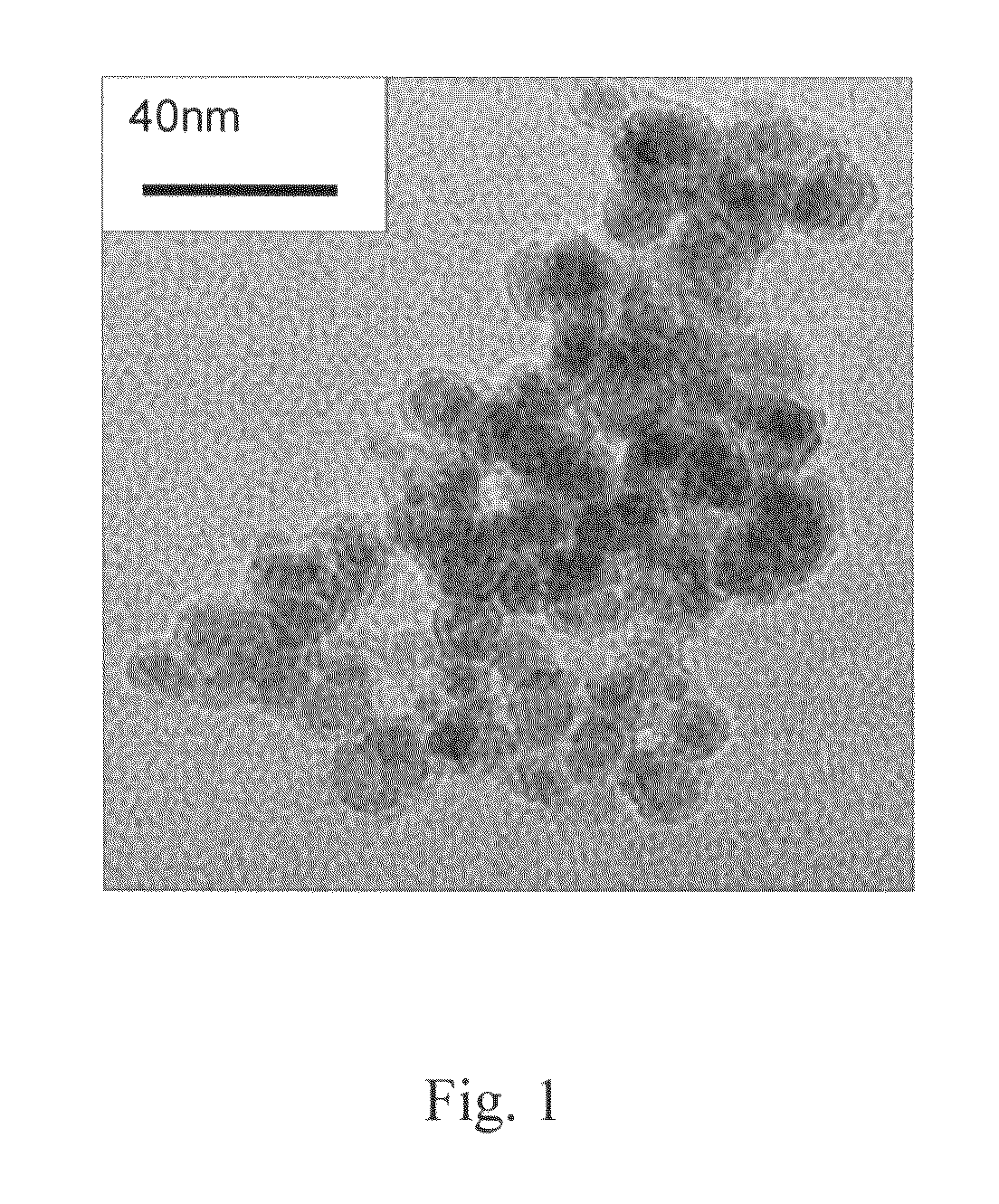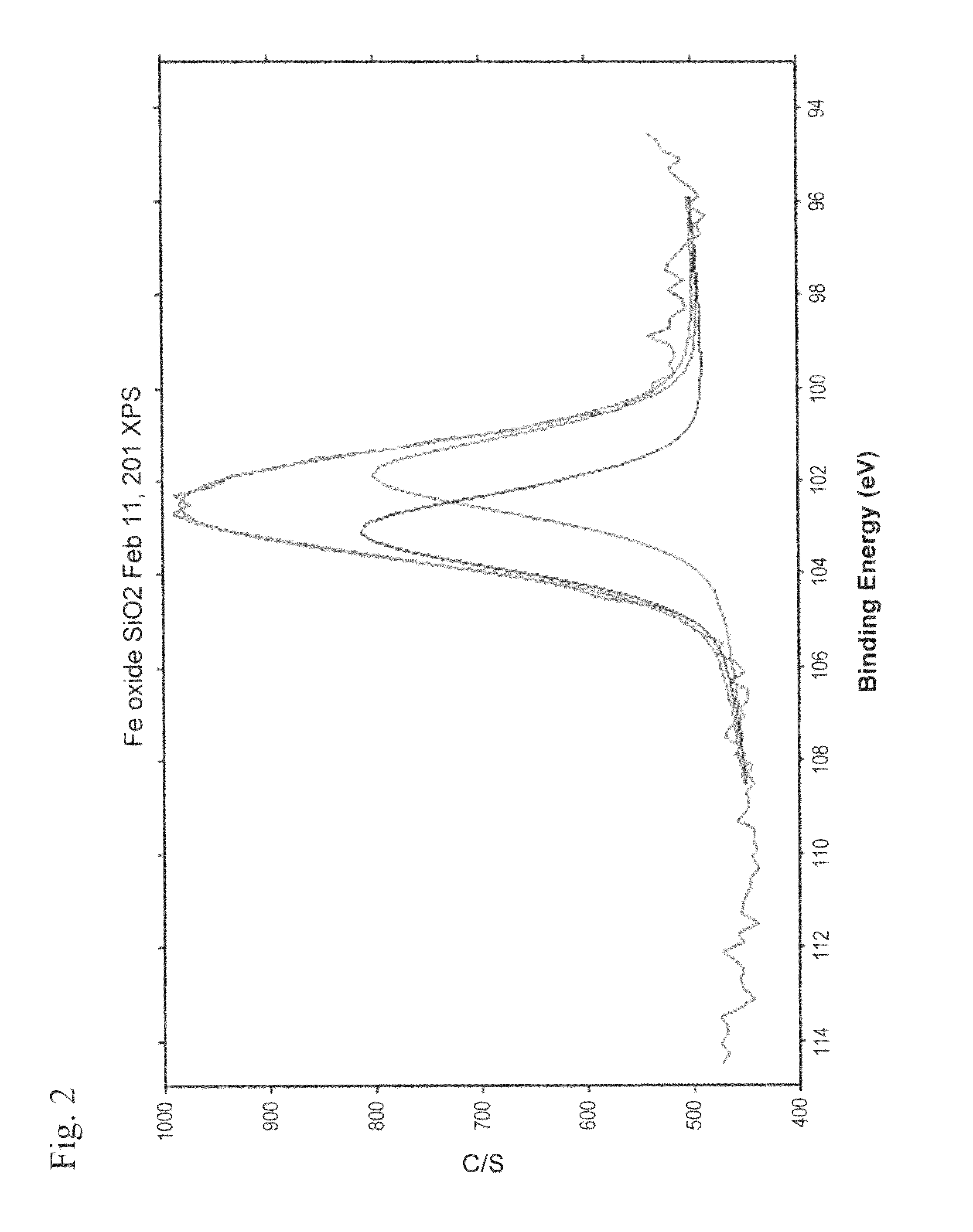Core shell superparamagnetic iron oxide nanoparticles with functional metal silicate core shell interface and a magnetic core containing the nanoparticles
a technology of iron oxide nanoparticles and core shells, applied in the direction of magnetism, diamagnetic/paramagnetic materials, magnetic bodies, etc., can solve the problems of high core loss, large loss of power, and limited utility of materials made from consolidated powdered magnetic materials, so as to achieve low total magnetic moment and little or no core loss
- Summary
- Abstract
- Description
- Claims
- Application Information
AI Technical Summary
Problems solved by technology
Method used
Image
Examples
example
Synthesis of Fe-Oxide / SiO2 Core / Shell Nanoparticles
Fe-oxide / silica core / shell nanoparticles and nanocomposite were synthesized as follows:
[0055]FeCl3 6H2O (4.444 g) and FeCl2 4H2O (1.654 g) were dissolved in H2O (190 mL). Ammonium hydroxide (10 mL) was added to the reaction. The product was washed with 2M nitric acid, and then water. The nanoparticles were re-dispersed in water, and the pH was raised to 7 using additional ammonium hydroxide. Triethylamine (5.5 mL) was introduced to the suspension and allowed to mix fully. Tetraethyl orthosilicate (TEOS, 1.4 mL) in ethanol (123 mL) was added to this nanoparticle suspension, and stirred for 15 mins. The silica-coated iron oxide nanoparticles were precipitated from solution by lowering the pH to between 7 and 8 using 2M nitric acid, and then washed with ethanol. A TEM image of the nanoparticles is shown in FIG. 1.
[0056]X-ray photoecectron spectroscopy (XPS) analysis of the silica-coated iron oxide nanoparticle clearly showed the presen...
PUM
| Property | Measurement | Unit |
|---|---|---|
| diameter | aaaaa | aaaaa |
| thickness | aaaaa | aaaaa |
| diameter | aaaaa | aaaaa |
Abstract
Description
Claims
Application Information
 Login to View More
Login to View More - R&D
- Intellectual Property
- Life Sciences
- Materials
- Tech Scout
- Unparalleled Data Quality
- Higher Quality Content
- 60% Fewer Hallucinations
Browse by: Latest US Patents, China's latest patents, Technical Efficacy Thesaurus, Application Domain, Technology Topic, Popular Technical Reports.
© 2025 PatSnap. All rights reserved.Legal|Privacy policy|Modern Slavery Act Transparency Statement|Sitemap|About US| Contact US: help@patsnap.com


